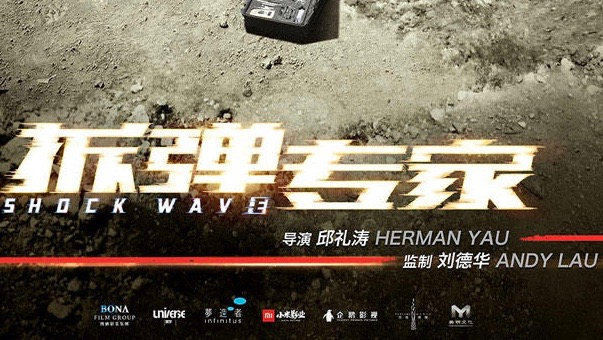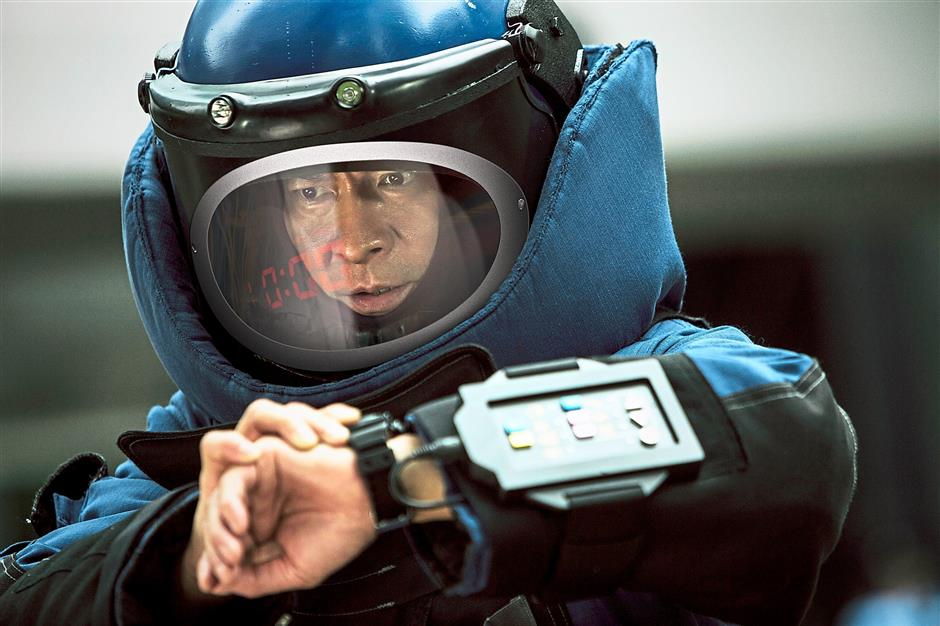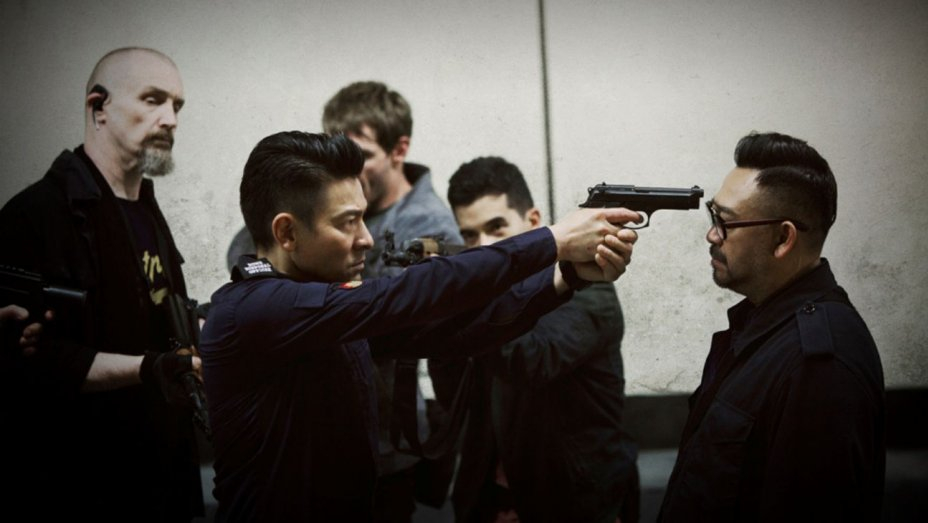
Culture
15:41, 08-Sep-2018
Changchun Film Festival: Shock Wave review
Updated
15:15, 11-Sep-2018
Josh

It happens to the best of them. Just as James Cagney started out as "The Public Enemy" and ended up as one of the "G-Men" and Clint Eastwood went from being The Man With No Name to being the man with plenty of official titles including SFPD Inspector (the "Dirty Harry" series), Secret Service Agent ("In The Line of Fire") and Texas Ranger ("A Perfect World"), Andy Lau, far and away the most successful of Hong Kong's Four Heavenly Kings, has finally settled down and joined the police in earnest as a bomb disposal expert in Herman Yau's thriller "Shock Wave".
Lau's sharp features have always given his handsomeness a dangerous edge which, at first, thanks to the talents of Wong Kar-Wai, Wong Jing and Benny Chan, led to roles where he played gangsters, gamblers and others on the wrong side of the law; by the 2000s, Alan Mak, Andrew "No Relation" Lau and Johnnie To had him ostensibly on the right side of the law, but dirtied by undercover work or other mob ties - most famously in the worldwide hit, "Infernal Affairs" .
Now, thanks to Alan Yuen and, in this instance, Herman Lau, there's no question about where he stands.
Within the first half hour of "Shock Wave", Lau, as Cheung Choi-san, a bomb disposal officer with the Explosive Ordnance Disposal (EOD) Bureau of the Hong Kong police, busts a gang of thieves known for using bombs to destroy then rob bank vaults and gives a speech to his co-workers in which he says he is incredibly thankful for being able to use his talents to keep his city and his country safe.
This kind of specific moral compass is important as, when the aforementioned gang's leader Hung Kai-pang AKA Blast, as played by an incredibly hammy Jiang Wu, comes looking for revenge, "Shock Wave" starts to lose its way.

Andy Lau as Cheung Choi-san in "Shock Wave" /Universe Entertainment Photo
Andy Lau as Cheung Choi-san in "Shock Wave" /Universe Entertainment Photo
Director Yau can be described as the Hong Kong equivalent to Takashi Miike: Both men are insanely prolific - Yau has 71 directorial credits on the IMDb, Miike has 103 - and both have an eye for sleaze, though while Miike has tended to hop around genres, the bulk of Yau's work was in Category III schlock like "Taxi Hunter" and "The Ebola Syndrome" up until the money started to run out in the Hong Kong film industry, forcing him to branch out into more mainstream fare.
Unfortunately, his talents haven't expanded to match the variety of films he now makes and his methods for filming the types of set pieces like "Shock Wave" calls for are somewhere between haphazard and completely random.
Car chases are filmed in a variety of ways, ranging from GoPros affixed to bumpers and wing mirrors to traditional dollys and hood-mounted cameras for reaction shots.
The quick cutting between them matches the quick pace of the action being filmed but conveys no spatial awareness and by the halfway point - when split-screens, slow motion and appallingly bad CGI have been used to show how Lau diffuses bombs - it starts to feel like Yau doesn't really know how to direct a thriller so he relies on Andy Lau to be something of a drawing board, at which he throws every technique available to him just to see what sticks.

Andy Lau and Jiang Wu in "Shock Wave" /Universe Entertainment Photo
Andy Lau and Jiang Wu in "Shock Wave" /Universe Entertainment Photo
This extends to the script too, only that unravels in the latter half instead of upfront.
Co-written by Erica Lee and Yu himself, the premise of "Shock Wave" is simple enough; it's when Hung Kai-pang's plan comes into action that the problems arise.
At least 80 of the 119 minute run time is dedicated to the hostage situation inside the Cross-Harbor Tunnel, which gets lined with C-4 and blocked off by trucks full of explosives by Hung and his men.
As soon as it begins, a host of subplots are introduced. All of them are interesting, and none of them are developed, leaving the film feeling unfocused.
A better director could have turned this into a unique and compelling story about how the personal aspects that motivate vengeance can get lost in the grander scheme of things; instead, it becomes a tangle of subplots that weigh each other down.
This could be intentional. There are plenty of examples but John Woo's "The Killer" stands out as the prime example for how Hong Kong directors are willing to end their films on a dour note and the ending - including the brutally specific facts and figures of the carnage that came before it revealed in the epilogue - carry a sense of inevitability about them; when faced with such a magnificent plan, how could one man, even one as heroic as Cheung Choi-san, save the day?
"Shock Wave" is fleetfooted enough to skirt along on those ideas and notions of ideas while in motion, but as soon as it comes to a stop, everything falls apart - everything apart from Lau, that is, who, just like his character here, is great at everything and holds it all together.

SITEMAP
Copyright © 2018 CGTN. Beijing ICP prepared NO.16065310-3
Copyright © 2018 CGTN. Beijing ICP prepared NO.16065310-3